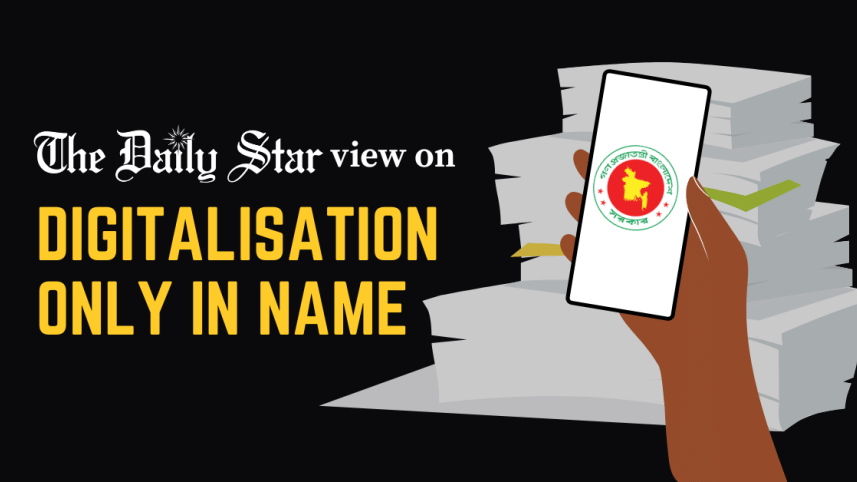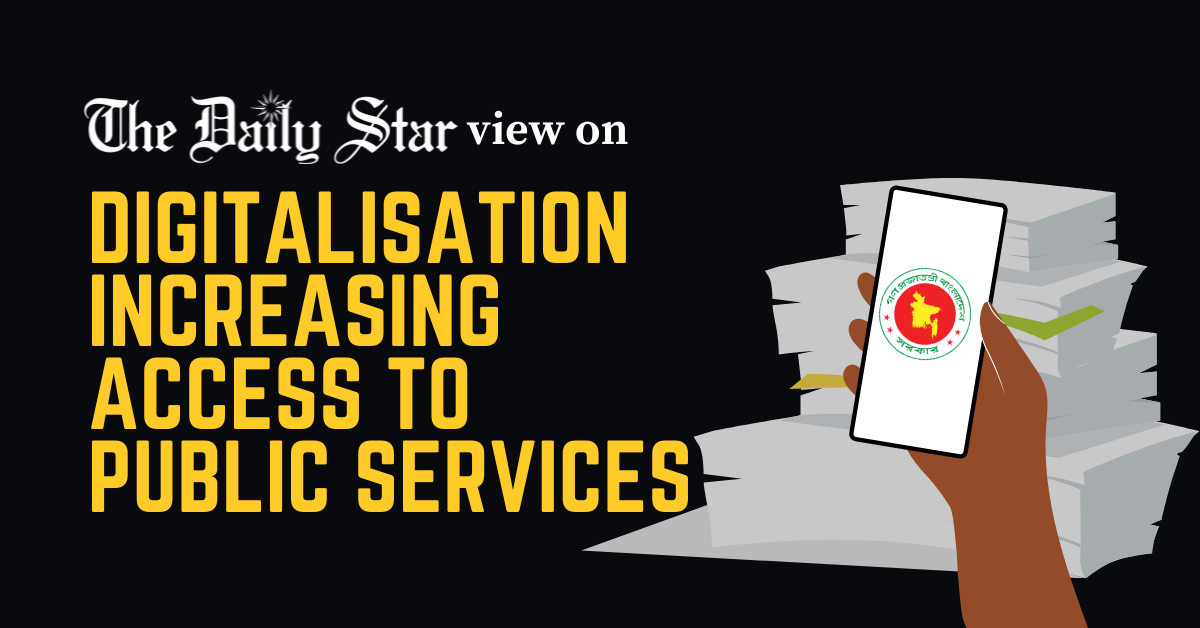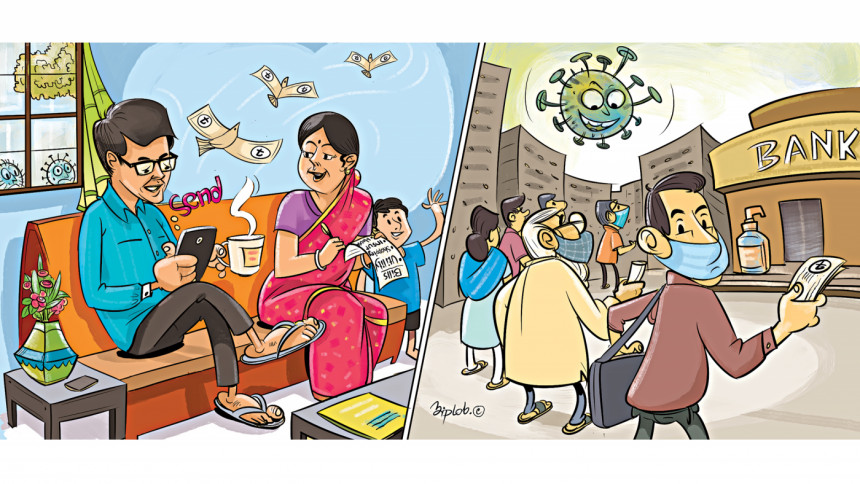Half-baked digitalisation will do us no good

It's alarming that even after a decade-long drive of the government to put its administrative procedures online, many digital services are still poorly functioning or exist only in name, thanks to slow servers, poor internet speed, as well as disruptive practices inherited from the analogue time. As a result, people are not getting the maximum benefit from 761 services that the government have digitalised. A number of those services can no longer be requested online, as per an official evaluation done on 67 digital services provided by 26 ministries and divisions. Many are suffering from myriad other problems.
According to a report by this daily, the evaluation by the Central Procurement Technical Unit (CPTU), based on interviews with service providers and recipients, has brought out mixed findings: while most beneficiaries are positive about the digitalisation drive, they are facing different kinds of problems while requesting e-dockets, land mutation, e-passport, machine-readable passport, loan service, e-trade licence, etc. Either the websites through which the services can be requested are not updated regularly, or services are no longer operational because of a dearth of skilled manpower, or user interfaces are too complicated, or servers are down frequently. All this is causing delays and often escalating costs of the services sought.
Clearly, the digitalisation drive is still under the influence of the stubbornly analogue government work culture that it aspires to replace. That culture involved slogging through labyrinthine offices and huge paperwork as well as dealing with irregularities every step of the way. While this is no longer the case for many services now offered digitally, that work culture is proving harder to change. That said, there is growing evidence that if used properly, digitalisation can be a huge boon, as revealed in a recent study by the Implementation Monitoring and Evaluation Division (IMED). It showed that digitalisation of 66 percent of the services offered by six ministries/divisions has saved both time and money. Some 70 percent of the service-seekers said they faced no "hassles" of the kind that one would when those offices were run manually.
There are huge benefits to be derived if all administrative procedures are moved online or completely digitalised, and if the scope for analogue interventions is eradicated. Bangladesh may still be a technological backwater – with generally poor internet connectivity and digital literacy – but many of the problems facing government services are systemic, and can be resolved with proper guidance and motivation. We urge the government to go all out to make its digitalisation drive a success. It must properly equip all service agencies and fix loopholes that are still causing mismanagement and irregularities. Setting up a digital agency to oversee desired reforms can also be considered.



 For all latest news, follow The Daily Star's Google News channel.
For all latest news, follow The Daily Star's Google News channel. 


Comments